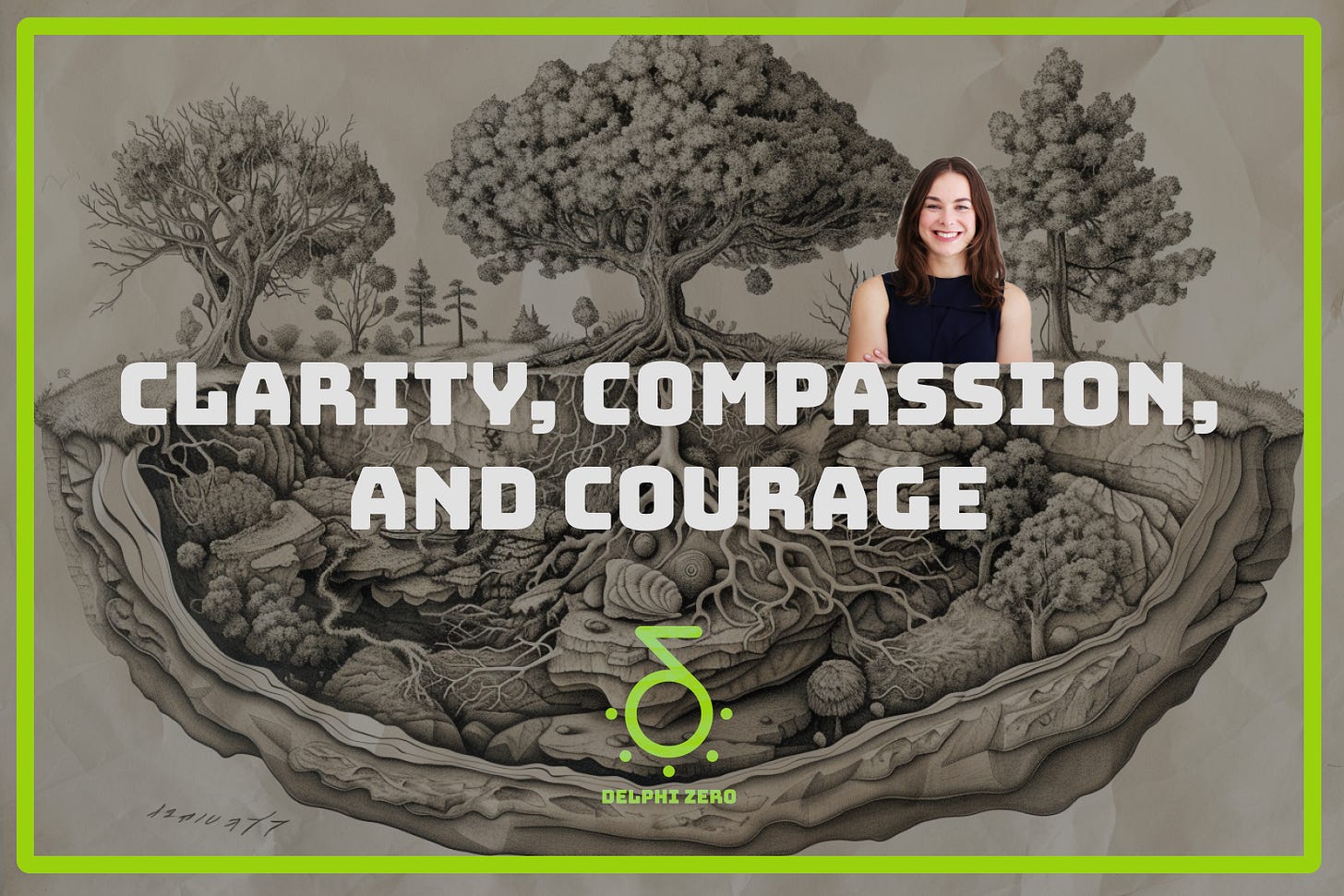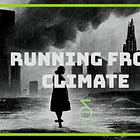Clarity, Compassion, and Courage
A conversation with Gyri Reiersen about carbon accounting, regulatory opportunities, and why climate action requires a lot of heart.
👋 Hi to 2,038 climate buddies 🌳
Climate is not a technology problem but a story problem.
Delphi Zero is a consultancy and newsletter about the narrative potential of climate.
In today’s convo with my friend Gyri Reiersen - Founder & CPO at Tanso - we covered:
🇳🇴 Her path from rural Norway to starting a climate tech company
🇪🇺 How EU legislations such as CSRD and ESRS present opportunities for entrepreneurs, established businesses, and regulators
❤️ Why climate action requires a good portion of courage
I hope you’ll enjoy this conversation.
Clarity, Compassion, and Courage
By Art Lapinsch
Please take us through your journey. How does a Norwegian girl go from selling snacks at Stavanger airport to becoming a co-founder of a climate tech company in just ten years? When were some pivotal moments that led you to where you are today?
I grew up on a remote farm in northern Norway, close to nature and the wild and rough coastal weather. With both parents being biologists, I’ve seen how everything in the biosphere is connected and how much we humans depend on nature and climate.
We discussed science and politics at the dinner table. I was encouraged to take part-time jobs at a young age, join local politics, and volunteer, and I quickly discovered the world outside of Norway.
I worked on projects for NGOs in Haiti, Romania, and Ukraine. I had a weekend job at the airport, striking up conversations with business leaders, adventurers, musicians on tour, and people going on holiday. I believe that everyone should work in a service job at least once. It exposes you to the colorful diversity of society and teaches you to meet people and their needs where they are, no matter who they are.
In my teens, we moved close to Stavanger - the petrol capital of Norway. There, I saw the energy and technology sector up close.
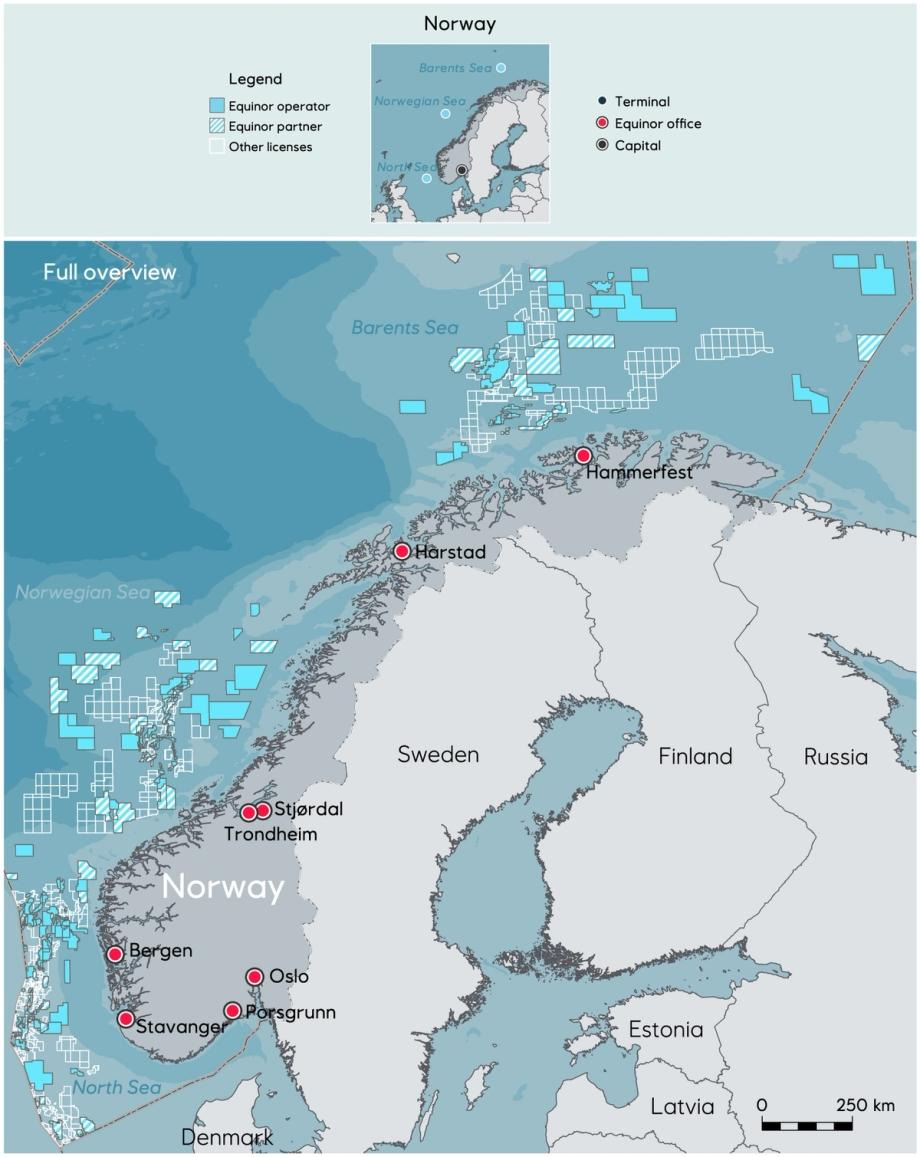
Already then, leaders discussed shifting away from oil and gas and how to meet the enormous energy need in the future. In my last year in high school, I took a bus for 5 hours to join my first net zero conference as its youngest participant. Discussing high-tech solutions and the energy transition with thought leaders was the final push for me to go all-in for a technical education.
At 18, I moved to France, Germany, and later Switzerland to study in the best European tech ecosystems. It has been a journey with many small steps along the way. Going abroad led me to discover how to use my affinity for technology to make the world better.
With the climate crisis as the most looming threat to both environmental and social well-being, I can’t see any more important cause to spend my time, skills, and efforts on.
What came first, your interest in climate or your interest in technical areas? What’s your most valuable takeaway from your studies and research activities? Why?
I’ve recently reflected on how environmental science and climate science originate from two separate fields of study. Nature is mostly biology and climate mostly physics.
We see that in the legal conflicts between wind and solar park developers and local communities around nature conservatism. We need green energy generation to reduce atmospheric emissions, but that can come at an indirect cost of a collapsing biosphere.
I’ve always cared about nature and draw energy from immersing myself in it, be it swimming in the sea, climbing mountains, or listening to the life of a forest. I have always had a scientific mindset, seeing biology as nature’s technology and languages as mathematics. I only encountered climate sciences in-depth in the last years of my studies while doing AI research on forest carbon sequestration. When emissions got more tangible and I started to dig into carbon budgets and climate modeling, I started to see the link between atmospheric emissions, climate, and our natural lives on Earth.
I could talk about forests and their influence on climate for days but here are my top three facts:
🌲 Did you know that the % of forests on the Earth's surface is a parameter in climate models?
🇪🇺 Since 2000, we have cut down more than the size of Europe in forest cover.
🪓 Every year, we cut down more trees than we plant, meaning we release more emissions through deforestation, than we reduce through planting trees.
I love that I can ask a fellow founder some questions! Tell us about the early days of your company - Tanso. How did it happen? How did the team decide to go after sustainability accounting for the manufacturing industry vs. other problems/opportunities?
I got to know one of my co-founders through the renowned innovation program CDTM (Center for Digital Technology Management) in Munich and loved working together. We decided to work together after finishing our studies to move the larger levers on sustainability and got our third co-founder on board right after.
CSRD - Corporate Sustainability Reporting Directive was announced in 2021, and digging into that we got excited by the ambition level of the EU. One thing is to know rationally that we need a just transition to net zero ASAP; another is to make it mandatory and encourage and force companies to take responsibility for it. As awareness increased, transparency and accountability on sustainability metrics were missing to realistically improve, and the EU was opening up a large market to make corporate sustainability a core part of business.
We interviewed over 100 stakeholders in various fields and discovered that the industrial sector was massively underserved and lacking despite being responsible for ~30% of the EU emissions.

We firmly believed that there was and would be a price on carbon, and that every company will need to adjust and take that financial carbon value into account to stay future-proof. With the market in its early days of exploding, we saw an opportunity to build a business that while growing commercially could scale its decarbonization impact.
What were some surprising learnings from building your climate tech company? What was unexpectedly difficult about the journey so far? Why?
To be honest, I doubt any first-time founder knows what they sign up for.
Especially as a venture capital-backed startup, you have an enormous privilege to create reality of your vision but with it comes an immense responsibility and pressure to build and scale the company and product. Since we first raised our pre-seed round in 2021, the market has grown more healthy and readjusted expectations on headcount growth, cash efficiency, and valuations.
On top of that, we climate tech founders have an intrinsic pressure and ask ourselves the question “Am I maximizing my impact?”
I love my job, my team the mission we are on, and the position I am in to turn our vision into reality, and wouldn’t change it for the world.
One of the most important learnings I’ve had the last year is to communicate climate outside of the climate nerd bubble. Especially how to communicate the severity of the climate crisis and building positive momentum for action.

We sell software to companies who are largely responsible for Europe’s emissions. They will have to undergo unprecedented change and turmoil in the next years. The climate data is clear. The numbers don’t add up. We have already had 12 months of 1.5deg global warming. That’s the target of the Paris Agreement. Facing this doom, leaders can get paralyzed, ignore it, or react with anger. Even for me as a climate tech optimist, it’s hard to not give up at times.
Change requires clarity, compassion, and courage.
As someone who is developing solutions to accelerate this industrial decarbonization, a part of my job is to provide clarity of the science and the future we are headed towards, meet them with compassion, and showcase the opportunities and positive impact to build the courage they need to move their companies around. I have tremendous respect for the courage that our customers have when they choose to look at the numbers and make hard decisions to change.
What is sustainability accounting and why does it matter? How would you explain it to a potential client? What are common misconceptions? Why?
One can draw a parallel between sustainability accounting and financial accounting. It is crucial to know your numbers to run your business profitably. The same goes for corporate sustainability. You can only manage what you measure.
The definition of sustainability has three pillars:
Economic 💶
Social 🤝
Environmental 🌳
To future-proof your business and be financially sustainable you need to internalize your externalities. That means understanding the risks and opportunities that come with the company’s impact on people and the environment.
Who would have thought that accounting standards could bring hope? As bookkeeping was revolutionized from paper-based intransparency in the 80s, sustainability reporting is now undergoing a digital rebirth and we see global harmonization of standards and regulations for C-level accountability of non-financial disclosures.
The EU with its CSRD and the European Sustainability Reporting Standards (ESRS), and the ISSB with its International Financial Reporting Standards (IFRS), has set a mind-blowing ambition level for companies to set targets, describe in-depth strategies, report metrics, and be held accountable. That is the level we need to be playing on.
How does 2030 look like from where you stand? What’s surprising about this future? Why?
Some say that we overestimate what we can do in 1 year and underestimate what we can achieve in 10. We now have roughly 6 years left until 2030.
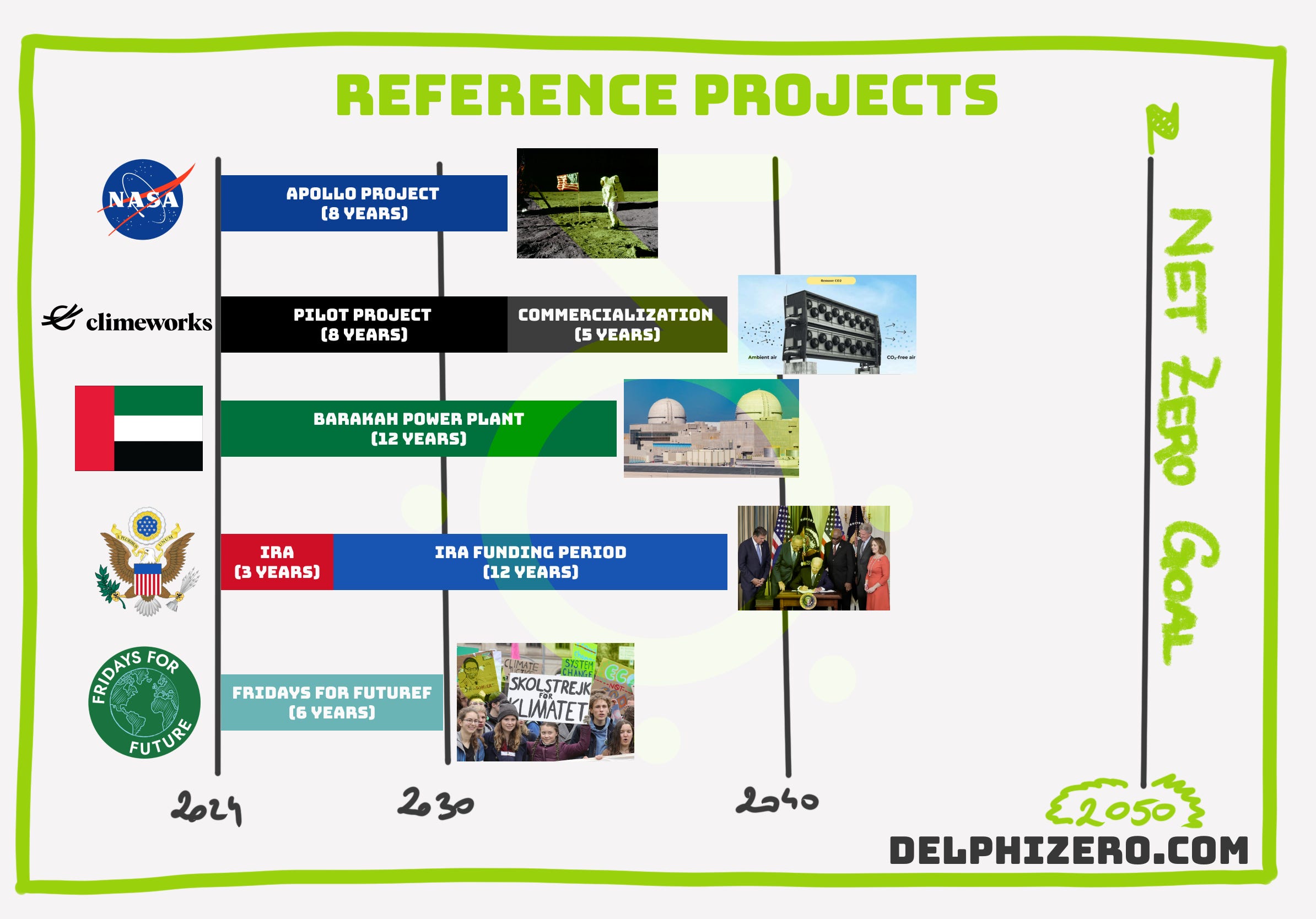
🦯 In Europe, we use the “stick” with regulations such as CBAM (Carbon Boarder Adjustment Mechanism) already hitting this year forcing companies with European value chains to report and later pay up to €50/t in carbon taxes.
🥕 In the US, the IRA is used as the “carrot” attracting leading innovators with financing and accelerating emerging manufacturing and industries and building more resilient parallel supply chains on a global scale.
We have a long way to go when it comes to energy infrastructure, electrification, and refurbishing existing assets. What we need now is large investments to bring the technology cost down as well as the data infrastructure to become more effective with our strategic decisions.
Just imagine the EU corporate sustainability dataset in 2030. Over 50.000 companies have yearly submitted a full assessment of their risks, targets, and measures. Even with mediocre data quality, this is a potential policy-controlling tool to evaluate the effectiveness of our climate action and whether we are on track. I am optimistic that we will have a future that is more effective in change.
What are some risks and opportunities in this vision? What are most businesses not seeing yet?
I’m excited to see how fast conservative leaders can change their opinion on sustainability and shift towards seeing the business opportunity. Before the global Fridays for Future strikes in 2019, the general attitude towards climate and sustainability was depressing, and young climate activists were rejected as naive. “We can’t just wait until the dinosaurs in power die out”, is a saying of the young generation.
Now, when talking to C-level management of our customers and partners they tell me that their daughter/son challenges them to learn about climate, its consequences, and how they are contributing to the crisis. Especially Baby Boomers seem to have a strong opinion against changing their paradigm on sustainability and away from sole profits, but the last years have shown that it can change.
What are some climate-related problems that keep you up at night? Why? What’s your best guess on how to solve it?
I’m terrified about the human cost and the political instability that will come with climate refugees. Currently, roughly 1% of the Earth’s land areas are uninhabitable for humans. It’s estimated that in 2070, this will increase to 19% due to heat waves and extreme weather. What keeps me up at night is that 3.5 billion people live in this area today. That’s almost half of the world’s population. The climate crisis is unjust.
Growing up, our small local village had a center for refugees and asylum seekers. At times, half of my classmates needed to learn a curriculum in a language they didn’t know while trying to process fleeing their homeland to the dark and cold northernmost edge of the world. Being uprooted from your culture and community, never to go back, leaves scars and trauma on entire families and also requires a lot from the local community. It is heartbreaking to see whole families in pain, but heartwarming when local communities meet their needs and support where they can.
The only way I can imagine us facing the massive migration flows is to anticipate it and make a plan for how we will deal with it.
Climate adaptation is not only for physical and infrastructure risks but also for the social risk of migration, rapid change of culture, and societal composition. That is a responsibility that we all have.
What is something that you have changed your mind about since working in the climate space? What is something you have doubled down on?
I’m curious about how the general opinion on geo engineering will change in the next years.
I’m going to lay out some fascinating facts, and let you decide whether we are likely to dim the sun within the next 10 years.
Firstly, it’s much easier to artificially dim the sun than most people imagine.
100 planes injecting sulfur particles into the stratosphere would dim the sun by about 1%, and cool the earth by about 1°C.
- Ben James in “Someone is going to dim the sun, and it will be soon.”
As all of us who have read “Ministry for the Future” and “Under a White Sky”, there will come a time, sooner than later, when we desperately seek such solutions. When that time comes, we should have reduced the risk to a minimum.
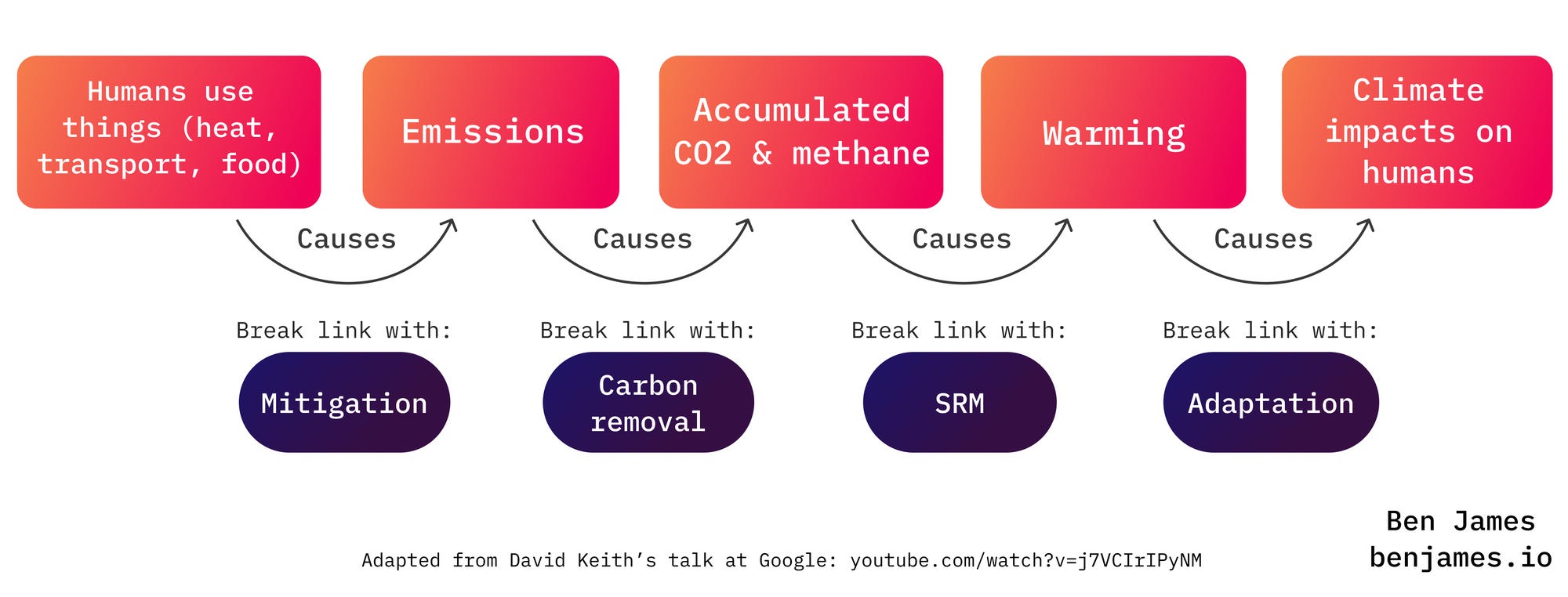
Imagine a smart and curious person reaches out and wants to join your company. The only problem is that they have never worked in climate or sustainability before. How would you structure their first 30 days to get them up to speed? What is overrated? What’s absolutely essential?
I love this question! There are so many resources to get started and I’m often asked how to navigate the jungle of information.
I’d recommend learning the basics and then going deep on what is your specific field of interest.
E.g. if you are a sales rep or investor, learn about quantifying the return on sustainability investments or about the trends in regulations. If you work in the industry, learn more about how your supply chain workforce or infrastructure is influenced by sea level rise, pollution, or extreme weather. Every company and every employee can contribute to mitigating and adapting to the climate crisis.
We mostly hire people without any climate or sustainability background. All roles have steep learning curves on industrial carbon footprinting, standards and regulation, decarbonization pathways, LCAs (life-cycle assessment), and much more, and quickly see the theory in practice.
On their first day, we have a first onboarding session with the basics of climate science to get everyone on the same page. In that, we go through the greenhouse effect, global warming, the origin of emissions, the global carbon budget, actuals, and forecasts to 2100 and beyond, as well as planetary boundaries and the three pillars of sustainability. The session is officially called “Intro to Tanso’s Mission”, but for most, it is a terrifying reality check of the status quo and therefore of what’s coming, no matter how tech-optimistic we are.
[I’ve written about this topic at length in this post 👇]
As we look back from a net-zero future, what do you think they will say about us?
I choose to believe that people are doing their best, and rather adjust my expectations to reality. But the reality is that we have not done enough.
Assuming a net-zero future is within reach towards the end of the century, I hope I am alive to see it and that my children and grandchildren tell stories of how their grandma played a small role in changing the course of history.
🙏 Thanks, Gyri for taking the time and sharing your perspective.
I’d love to hear from you, please get in touch and tell me whom I should interview next or which topics you’d like to see covered ✌️



